Capital Normal University
Capital Normal University
Capital Normal University (Capital Normal University), World class discipline construction universities , Ministry of Education of the People's Republic of China And Beijing Municipal People's Government Jointly build universities, Ministry of education, undergraduate teaching level evaluation excellent schools, Beijing's key universities. Beijing University Alliance Members; selected. National construction of high level university postgraduate projects Country Featured key disciplines , Ministry of education's demonstration base for studying abroad in China Ministry of Education Excellent teacher training program , National Undergraduate Innovative Experiment Program , Chinese government scholarship to receive international students in China , Rural teacher support scheme , The first batch of scientific and technological achievements transformation and technology transfer bases in Colleges and Universities Beijing double training program and Beijing Chinese language education base; disciplines and disciplines cover articles, science, engineering, management, law, education, foreign languages and art.
Capital Normal University was founded in 1954, formerly known as the Beijing teachers' college. Its history of running schools can be traced back to the Tongzhou normal school established in 1905. After 1960, some colleges and departments such as North China People's University, Beijing teachers' and peasants' teachers' College, Beijing art Normal College and Beijing teachers' college were successively entered. In 1992, the Beijing Normal College Branch was incorporated and renamed Capital Normal University in the same year. Since then, Beijing Union University foreign language normal college, Beijing third normal school, Tongzhou normal school and Beijing preschool normal school have been merged.
As of March 2019, the school covers an area of about 880 thousand square meters, with a total construction area of about 757 thousand square meters. There are school districts, Kita Ichi, north two, Haidian, east campus, Liangxiang, Tongzhou and other campuses. 12 million 918 thousand books (pieces) of all kinds of books and documents are collected. The school consists of 31 departments and 2 teaching and research departments. The total number of students was 31559, of which 195 were full-time students, 40 were junior college students, 11245 were undergraduates, 6691 were masters, 851 were doctoral students and 2155 were foreign students. There are 2505 faculty members and 1642 full-time teachers.
Historical evolution
In 1954, Beijing normal college was founded.
In 1960, the Department of philosophy and political education of North China People's University merged.
In 1962, Beijing workers' and peasants' teachers' College and Beijing sports normal college merged into it.
In 1956, East China Normal University Department of music, Northeast Normal University Department of music, Beijing Normal University The art department and music department merged to form Beijing art teachers college.
In 1960, the Beijing Academy of art was founded.
In 1961, Beijing Art Teachers College merged into the Beijing Academy of art.
In 1964, Beijing Art College and Beijing normal school were merged into Beijing normal college.
In 1978, the branch of Beijing Institute of foreign languages, the branch of Beijing normal college and the branch of Beijing Language Institute were established successively.
In 1979, the Department of physical education was separated from Beijing Normal College of physical education.
In 1980, Beijing normal college was designated as a key city university by the Beijing Municipal People's government.
In 1980, the Beijing foreign language school was merged into the three schools of Beijing Foreign Language Institute branch and Beijing Language Institute branch, and it was designated as the branch of Beijing Foreign Language Institute.
In 1985, the branch of Beijing foreign language college was admitted to Beijing Union University and was named Beijing Union University foreign language normal college.
In 1992, the Beijing Normal College Branch was incorporated into Beijing normal college, and was renamed Capital Normal University in the same year.
In 1993, Beijing Union University foreign language normal college Merge into.
In 1999, Beijing third normal school and Tongzhou normal school were set up in 1905.
In May 2011, Capital Normal University was appraised by the Ministry of education as "the typical experience college for graduates in the whole country".
In December 2011, Beijing Preschool Normal School Integrated into the school and preschool education major.
In April 2014, the Ministry of education signed an agreement with the Beijing Municipal People's government to jointly build Capital Normal University. In November of the same year, the school was selected to reform the outstanding teacher training program of the Ministry of education.
In 2017, Capital Normal University entered the national " "Double First-Class" initiative The first class disciplines should be set up in universities and colleges.
In April 13, 2018, it became a founding member of the Federation of Beijing University of Hong Kong.
In September 2018, the school signed a strategic cooperation agreement with HUAWEI Technology Co., Ltd.
In November 2018, the Ministry of Education announced the first batch of the list of excellent Chinese traditional culture heritage bases, which was selected by Capital Normal University.
In February 2019, schools were recognized by the Ministry of education as the first batch of universities to transform scientific and technological achievements and technology transfer bases.
School running conditions
Department specialty
As of October 2015, Capital Normal University has 27 departments, including the Faculty of Arts, history, politics and law, education, foreign languages, Marx, College of music, Academy of Fine Arts, School of mathematics, Department of physics, chemistry, life science, resources and tourism, information engineering, education technology, primary education, pre school education, Yandu, Liangxiang campus, basic education, continuing education, international culture, Beijing and Xinjiang. Capital Normal University School of Science (Independent College); a total of 1 specialties (pre-school education), 56 undergraduate courses and 65 professional directions, covering 10 disciplines, including philosophy, economics, law, pedagogy, literature, history, science, engineering, management, art, etc., of which 14 are 14 majors, 51 are non teacher education majors.
Discipline construction
As of October 2015, Capital Normal University had a master's degree in 26 disciplines, 147 master's degree programs, 17 doctoral degrees, 97 doctoral candidates, 16 post doctoral mobile stations, 4 key national disciplines, 1 key state disciplines (8), 8 key disciplines in Beijing, 6 key disciplines in two cities in Beijing, 1 key construction disciplines in Beijing, and two key construction disciplines in Beijing, Beijing, and key disciplines in Beijing.
· Key disciplines
Beijing city " Two hundred and eleven engineering " Key disciplines (9): Capital basic education innovation and modernization, Chinese and foreign history and civilization, Chinese literature research and modern culture, liberal arts, ideological and political education and philosophy research, art education and art theory, basic mathematics and applied mathematics, genetic and Bioengineering, urban geographic information technology and ecological environment protection and utilization of capital circle, optical physics science and technology.
National key disciplines (4, two level): Basic mathematics, botany, ancient Chinese literature, world history
National priorities (cultivation) subject (1 Two level disciplines ): Fine Arts
First tier disciplines, Beijing key disciplines (1): Mathematics
Two level disciplines, Beijing key disciplines (11): Marx philosophy, literature and art, Chinese language and literature, Russian language and literature, musicology, ancient Chinese history, modern Chinese history, cartography and geographic information system, genetics, development and educational psychology, and fine arts.
First tier disciplines, Beijing key construction disciplines (2): Pedagogy and foreign language and Literature
Two level disciplines, Beijing key construction disciplines (13): Religion, Marx sinicization, basic psychology, optics, physical chemistry, cell biology, communication and information system, cartography and geo information engineering, tourism management, natural geography, computer application technology, comparative literature and world literature, and analytical chemistry.
Interdisciplinary major disciplines in Beijing (2): Digital philology, mathematics and information technology
· Discipline ranking
In 2013, a total of 17 disciplines participated in the evaluation of the discipline level organized by the Ministry of Education (15 Ph.D. level), 5 of which entered China's top ten, 7 subjects entered the top 20% in China, ranked thirty-sixth in China's comprehensive universities, ranked first in the local universities and municipal universities in China. In Beijing's major (construction) discipline evaluation and acceptance work, the school's 8 key (construction) disciplines were rated "excellent".
In 2012, a total of 17 subjects in Capital Normal University participated in the evaluation of the discipline level organized by the Ministry of Education (15 authorized subjects at the doctoral level). Among them, world history (fourth) entered the top 10% of the participating subjects; pedagogy (6), Chinese language and Literature (12), music and dance (7), Arts (5), mathematics (13), statistics (15) and other 6 disciplines entered the pre assessment subjects; The number of the top 20% disciplines (7) ranked fourth in China Normal University, ranking first in local universities (parallel to Nanjing University) and in Beijing municipal universities.
Academic resources
· Collection resources
According to the official website of the library in December 2015, Capital Normal University Library At 19
Established in 54 years, there are over 1000 volumes of books and documents, of which 298 are printed books, 679 are electronic books, 20 are electronic journals, 88 are non books and magazines, and 40 are self built databases. The library has formed a key discipline resource system represented by history, Chinese language and literature, mathematics, pedagogy and other disciplines. Through its participation in CALIS, BALIS and hosting the project of "Beijing University Network Library", the library can get the documents of most university libraries and national libraries, Shanghai libraries and national science and Technology Library and documentation center (NSTL) through interlibrary loan and document delivery service.
· Academic journals
Journal of Capital Normal University (SOCIAL SCIENCE EDITION) It is a bimonthly of social science sponsored by Capital Normal University. Its predecessor is the Journal of Beijing teachers' College (SOCIAL SCIENCE EDITION). In 1992, it changed its name to the present one. The column covers political, economic, cultural, historical, philosophical, legal, educational and other fields. It includes columns such as "Research on Modern Chinese history of ideology and culture", "world history study", "social complexity research", "expert interview", "Doctoral Forum", "Centennial literature perspective", "Comparative Education" and so on. The journal was selected in the general library of Peking University library and the Chinese Social Science Citation Index (CSSCI) source journal of the Chinese social science research and evaluation center of Nanjing University.
Journal of Capital Normal University (NATURAL SCIENCE EDITION) It is a biweekly of science and technology sponsored by Capital Normal University. It was first published in 1976 and semi annual in 1980. It was changed to a quarterly publication in 1986 and approved by the State Press and publication administration. Its predecessor is "Journal of Beijing Teachers College" (NATURAL SCIENCE EDITION). In 1992, it was changed to the name with the change of the school name; it was included in the "mathematical digest" and the statistical source journal of Chinese science and technology papers (China Science and technology core journal).
Cultural tradition
School badge
Designer: Academy of Fine Arts teacher Yan Xuefeng design time: 2004
The CNU capital letter in the center of the school badge stands for the acronym of Capital Normal University. It is also a simple and easy to remember image modeling. The font style is solemn and powerful, and its features are outstanding and changeable. The design fully embodies the rich and connotative symbolism. The open book is not only a respectful reservation to the traditional typical cognition of "teaching and educating people", but also a constant aim of the normal university.
The whole design is trying to maintain the traditional concept of the school badge and the habit of impression, and strive to seek greater breakthroughs in the form design. The olive branch and the English font of the school adopt the wrong construction modeling, breaking the symmetry of the traditional modeling, making the design with strong vitality, not only bringing people's visual attraction, but also creating a psychological shock. The underlying concept of the wrong form design lies in her symbolic motivation, which means Capital Normal University should be a university that has never been conservative, always enterprising, breakthroughs in itself, sustained and sustained development, and faces the international and open concept and spirit.
The design of the school badge not only achieves a good combination with the traditional nature, but also achieves the accurate expression of the design concept and the breakthrough and innovation of visual modeling on the basis of it.
School motto
Learning as a teacher and seeking truth from facts new
"To learn" means that teachers should teach and teach diligently, and students must study diligently and aspire to become talents.
"Teacher" means that the Capital Normal University is the cradle of cultivating teachers. Teachers should serve others as masters and teach students.
"Seeking truth" means to implement the ideological line of seeking truth from facts.
"Seeking new" embodies the spirit of the times. Teachers should strive to improve their sense of innovation and innovation, and attach importance to the cultivation of students' innovative spirit and practical ability.
The motto of "learning for the teachers, seeking truth from facts" advocates "learning for the teacher" from the perspective of educating people and cultivating teachers, emphasizing the importance of learning as a teacher and acting as a teacher, advocating "seeking truth and seeking novelty" from the perspective of doing scholarly research and doing pioneering work, emphasizing on seeking truth from facts and creating innovations, which fully embodies the requirements of the socialist core values for in-service teachers and future teachers.
School song
Capital Normal University school song
Lyrics: Pan Liang and Zhang Dacheng composing: Yin Tieliang
Bathed in the morning sun of Beijing, peach and plum fragrance of Capital Normal University.
Students sow the United States
Good hope, youth ignites lofty ideals.
Ah, Capital Normal University, you are the mother of a student.
Capital Normal University, you are the sea of wisdom.
To learn as a teacher, seeking truth and seeking new things is like a pair of oars that break waves.
Capital Normal University, we sail with you!
Along with the pace of the motherland, Capital Normal University has a brilliant future.
Sweat moistens the fertile soil of education and builds great pillars of strength.
Ah, Capital Normal University, you are the mother of a student.
Capital Normal University, you are the hall of knowledge.
To learn as a teacher, seek truth and seek novelty, and become wings to take off.
Capital Normal University, we are with you, Gao Xiang!
Famous Alumni
Note: Capital Normal University has set up a school for more than 60 years to train and transport more than 10 thousands of science and technology and management personnel for the society. Alumni have made great contributions to their reform and opening up, economic construction and harmonious society, and alumni have made outstanding contributions to the reform and opening up, economic construction and harmonious society construction.
Liu Yuan : general of the army Original The Chinese People's Liberation Army Political commissar of the General Logistics Department
Liu Limin : Vice Minister of education and chief inspector of People's Republic of China
Xiao Pei : Vice Minister of the Ministry of supervision of PRC
Li Qi Yan : former member of the CPC Central Committee, Vice Minister of labor.
Hu Xiao Lian : People's Bank of China Vice President
Wang Meng : Minister of the Ministry of culture, contemporary famous writer
Jin Luo : Renmin University of China Secretary of the Party committee and vice chairman of the all China Women's Federation
Gao Hong : Secretary of the Party committee of China Central Academy of Fine Arts
Li De Qi President of China Institute of Industrial Relations
Xin Cheng Liu : the twelfth NPC Standing Committee and deputy director of the Standing Committee of Beijing Municipal People's Congress.
Kang Ling The Standing Committee of the CPPCC National Committee and the sixth, seventh Secretariat of the all China Women's Federation
Xie Bo Yang Counselor of the State Council and vice chairman of the former National Federation of industry and Commerce
Lu Jian Ping : Xinhua News Agency Former vice president
Wu Yin : Chinese Academy of Social Sciences Vice president and Party member
Ji Lian Hai : The Second Affiliated Middle School of Beijing Normal University Teacher, Beijing backbone teacher, Hundred lecture rooms Lecture
Yue Fu Hong Deputy director of the Economic Committee of the CPPCC National Committee
Dian Qing Wang Former vice president of Beijing Youth Politics College
He Ning : Deputy Director of Beijing press and Publication Bureau
Zhao duo Jia Beijing TV station director
Chang Xiao Yong Communist Youth League Deputy Secretary of Chongqing municipal Party committee
Deng Wen Zheng Deputy Secretary of Education Committee of Beijing municipal Party committee
Chun Jie Wang : the current party secretary and chairman of Beijing public transport holding (Group) Co., Ltd.
Li Xiao Bao Secretary of the Pingxiang Municipal Committee of Jiangxi and Secretary of the Pingxiang Military District Party committee.
Niu Xiao Hua Beijing deputies to the National People's Congress, Beijing second middle school Principal
Liu Chang Ming : member of the Central Committee of the League of nationalities and member of the National Committee of the Chinese people's Political Consultative Conference. Beijing fourth middle school Principal
Guo Han : Beijing Normal University Master of education, tutor, Beijing CPPCC member, Beijing 101 Middle School Principal
Meng Jinghui : China National Theatre Director, Beijing Danny international stage performance award for best director
Liu Jiang : President of fashion media group
Hou Xiaoqiang : Shanda literature Director and CEO
Dong Hao : moderator, painter, director of the Song Qingling foundation of China, vice president of Beijing Artists Association.
Xiao Ke (Ke Zhaolei): male singer, songwriter, composer and producer in mainland China. CCTV-MTV Music Festival Music special contribution winners
Pu Shu Male singer in mainland China. Golden Horse Award Best original film song winner
Bai Jing Ting Mainland China actor
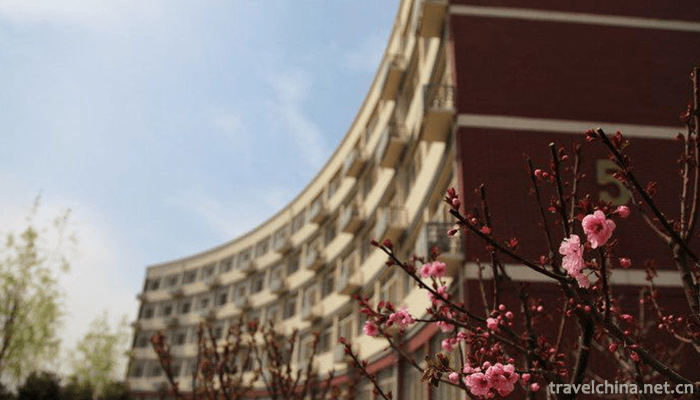
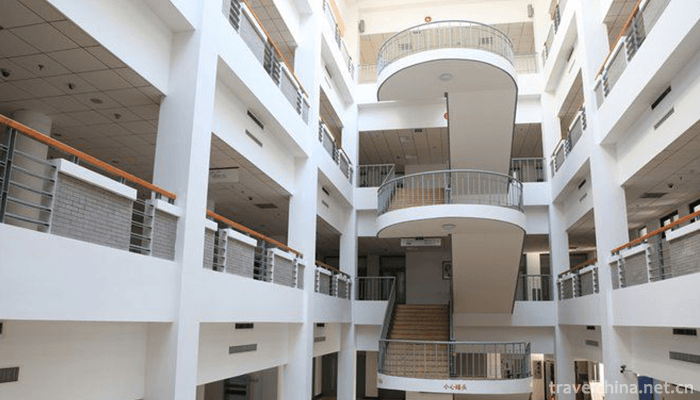
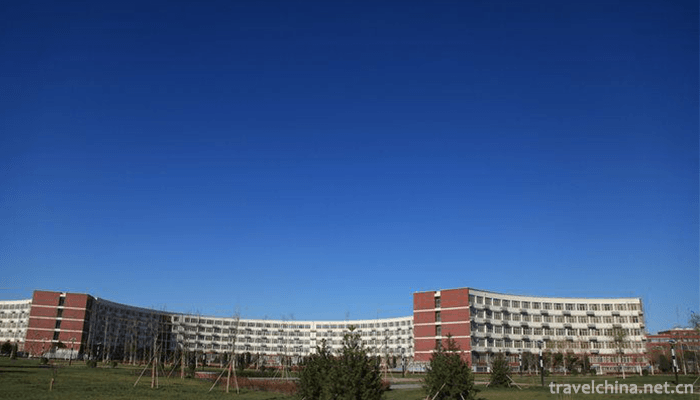
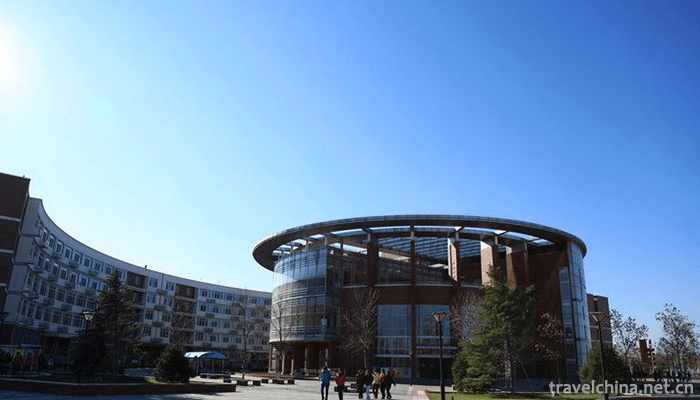
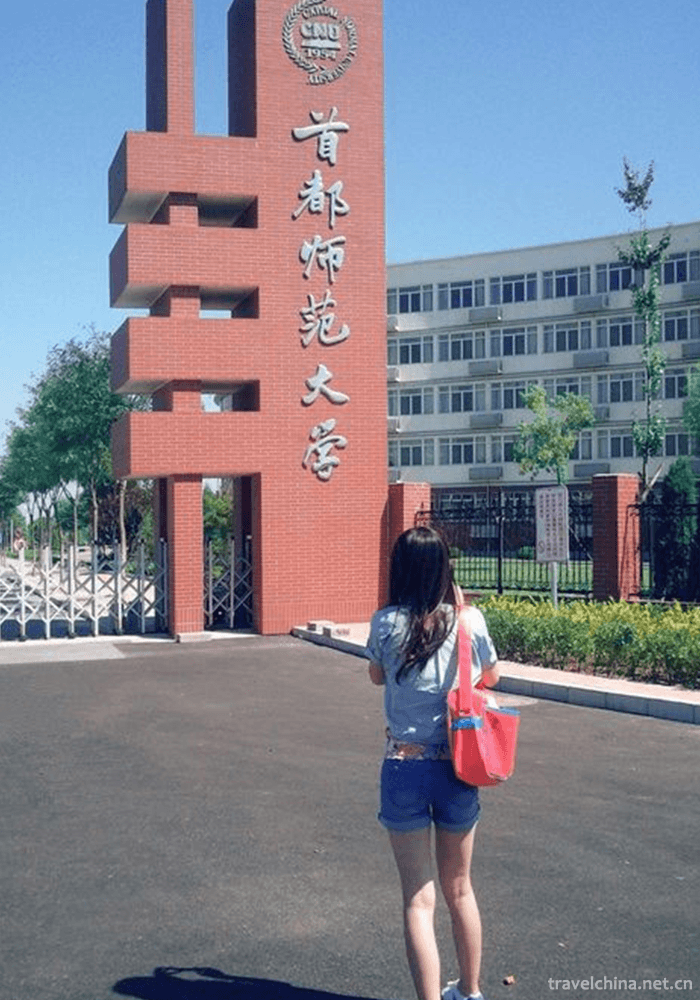
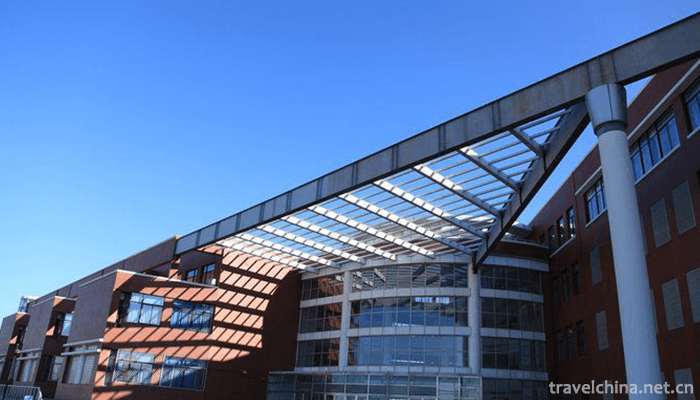

-
1.Global Dinosaur City Scenic Spot
The National 5A Tourist Scenic Spot Global Dinosaur City, located in Xinbei District, Changzhou, Jiangsu Province, is a comprehensive tourism resort with dinosaur theme
Time 2018-12-06 -
2.Memorial of Song Qinglings Former Residence in Shanghai
Song Qingling's former residence in Shanghai is the place where Song Qingling lived and lived for a long time. Qingling came to live here in the spring of 1949 and ushered in the liberation of Shangha
Time 2019-02-13 -
3.Mongolian Sawurden
Mongolian Sawurden, Xinjiang Uygur Autonomous Region and Jingxian traditional dance, one of the national intangible cultural heritage.
Time 2019-06-04 -
4.Naxi Dongba Painting
Naxi Dongba painting is an important part of Naxi Dongba culture and art, which is spread in the ancient city area of Lijiang City and Yulong Naxi Autonomous County of Yunnan Province. During the ritu
Time 2019-06-07 -
5.Running curtain
Running curtain originated in the Spring and Autumn Period and Warring States Period, formed in the Qin and Han Dynasties, flourished in the Song, Yuan, Ming, Qing Dynasty and the early Republic of Ch
Time 2019-06-09 -
6.Sharipol wrestling
Shaliboer style wrestling is a national traditional sports event originally created and retained by the Weilat Mongolian people. It is one of the main sports events in the Uznada Mu Grand Event in Ala
Time 2019-06-12 -
7.Linear cavity
Line-tune opera, also known as Line-score opera, is an ancient traditional opera in Shanxi Province. It first appeared in the Han and Tang Dynasties, and developed greatly. It flourished in the Song D
Time 2019-07-03 -
8.Yao embroidery
Yao embroidery is exquisite and delicate. Women practice flower-picking at the age of 6-7. When he grew up, he became a master of embroidery. Yao embroidery patterns are mainly used to represent trees
Time 2019-07-11 -
9.Ban Gu
Ban Gu (32 - 92 years), Meng Jian, Fufeng An Ling (now Shaanxi Xianyang Northeast China, famous in Eastern Han Dynasty historian , Litterateur 。 Ban Gu's birth Confucianism Family, father Ban Bi Uncle
Time 2019-09-06 -
10.Bao Zheng Bao Qing Tian
Bao Zheng (999 - July 3, 1062), He Xi Ren. Luzhou Hefei (now) Anhui Hefei Feidong People. Northern Song Dynasty Famous ministers.
Time 2019-09-11 -
11.Yi sea
The Yi sea is also known as the fish sea, and the local Yi people are called Su pin. It is located in Yangping mountain, Yihai Town, 40 km north of Mianning County. It is 330 km away from Chengdu, the capital of Sichuan Province
Time 2020-10-15 -
12.Wenchuan earthquake epicenter site
The earthquake site, located in Yingxiu Town, Wenchuan, Sichuan Province, is open all day.
Time 2020-11-07